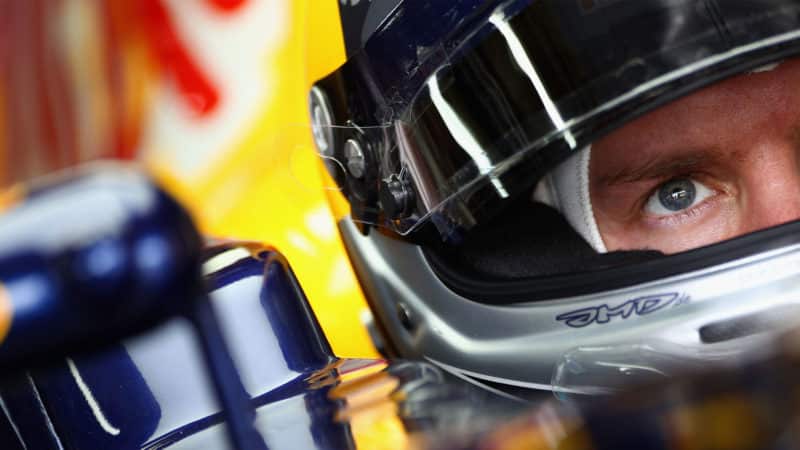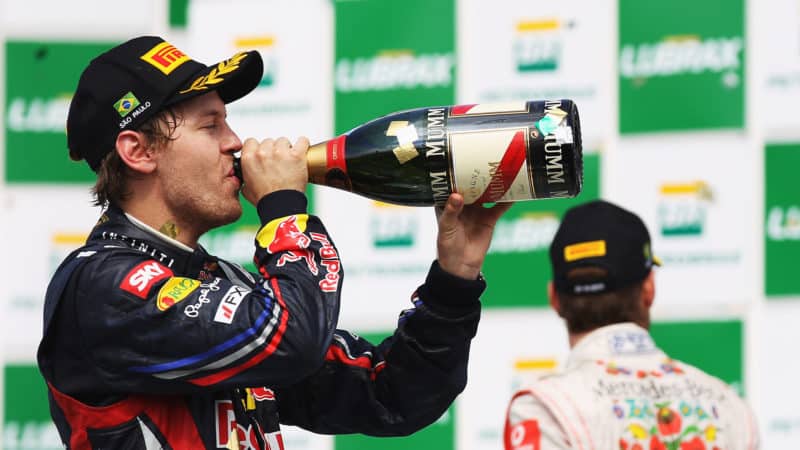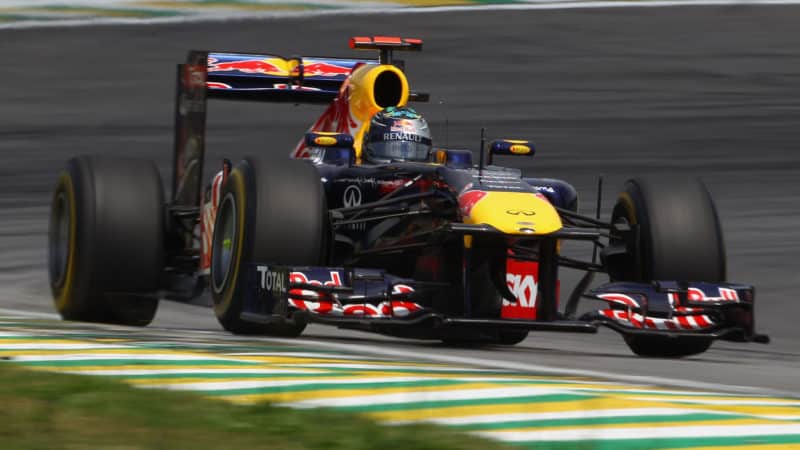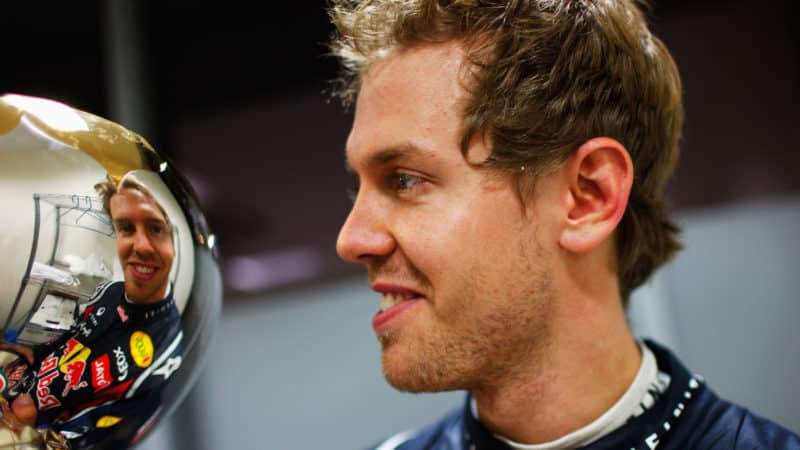Max Verstappen is living at comparable peaks now as he surpasses some (but not all) of the records Vettel set more than a decade ago. It’s a little glass-half-empty to make rash judgements after just one race, but how Red Bull and Verstappen performed in Sakhir triggered flashbacks to Vettel’s greatest days, and I can’t help but wonder how closely history might be about to repeat. The parallels cannot be identical, because nothing ever is. But perhaps there might be echoes. F1 as a whole will hope they don’t grow too loud. Those pre-season wishes of a potential three-way fight between Red Bull, Ferrari and Mercedes already appear to be in ashes. Let’s see what Jeddah brings this Sunday.
Rather than 2013, it’s Vettel’s second championship in 2011 that first springs to mind when I think of his personal peak of F1 domination, because that was the year when he fully tapped into the potential for sporting immortality. Compared to Verstappen’s record breaking 14 wins in a season last term, Seb ‘only’ won 11 times in 2011, but that was from 19 races – for which he started from pole position a remarkable 15 times. The combination of Adrian Newey’s RB7 and its exhaust-blown diffuser was completely in tune with Vettel’s preference for a planted rear end. That, combined with the ushering in of Pirelli as Formula 1’s new spec tyre supplier, allowed Vettel to jump way ahead of his opposition. The year before, a strong finish and the rub of the baize had allowed him to take a points lead only when it counted the most – at the very end, to become champion for the first time. In 2011 no one, including his put-upon team-mate Mark Webber and certainly not the man who has just replaced him at Aston Martin, could see which way he went.
Vettel and Red Bull weren’t flawless back then – thankfully. A broken radio antennae at the third race of the season in China led to a communication mix-up and a suboptimal two-stop strategy when Hamilton’s three for McLaren prevailed. But it was the only one of the first six races he lost – and he still finished second ahead of a fast-gaining, three-stopping Webber.

Vettel in Red Bull-mode had a laser-like killer instinct, not dissimilar to Verstappen today
Red Bull
In Canada he fumbled the last lap in an infamous race that officially lasted for more than four hours because of a suspension that lasted for more than two, as Jenson Button claimed probably his greatest victory. There were errors at the Nürburgring too, as Hamilton took the limelight on Vettel’s home soil. Between them, the McLaren pair still managed six wins, Alonso won for Ferrari at Silverstone – and Webber picked up a consolation in the Brazilian finale when Vettel was delayed by a gearbox oil leak.
But the natural order was the common yarn: Vettel would secure pole, scamper away at the start to break the DRS effect – the rear-wing overtaking device having just been introduced – then nurse the intentionally fragile Pirellis, as F1 perversely steered towards artifice by embracing tyres actually designed to lose performance. All in the name of entertainment, you understand. Vettel and Red Bull appeared to ignore the memo on most weekends.




